The business core of South Bethlehem — from Brodhead to Hayes streets, and from Second to Morton streets — now has a task force that monitors and cleans the neighborhood.
The South Side Ambassadors are paid workers who serve three main purposes: monitoring safety, maintaining a clean neighborhood and serving as hospitality personnel for residents and visitors to the area.
From 7 a.m. to 3:30 p.m. every day, a team of ambassadors patrols the area, which includes the core area, as well as alternate areas stretching to the flat iron building to the west and SteelStacks and Sands Casino to the east. The workers on this shift primarily focus on cleaning the streets in the morning and serve more in the hospitality role as the day goes on and more people come into the area. A second shift from 3 to 11:30 p.m. Monday through Saturday focuses more on the safety aspect, said Hector Lopez, the supervisor of the South Side Ambassadors.
All workers wear a uniform that includes a bright yellow shirt or jacket so that they are distinguishable to residents and visitors to the area.
This program is not unique to South Bethlehem. The daily operations are run by Block by Block, a company that has established this program in 67 districts throughout the United States. The company serves cities as local as Easton and as far as Yakima, Washington.
The funding for this project, which will last for an initial three years with a cost of $810,000, is covered by Lehigh University and the Bethlehem Economic Development Corp., a non-profit organization that is run by city officials. Lehigh contributed a little less than a quarter of the funding.
The program was announced at a press conference held on Sept. 5, where Lehigh interim President Kevin Clayton and Bethlehem Mayor Robert Donchez reaffirmed both entities’ commitment to the future of South Bethlehem.
This is the second initiative within the last month on which the university and city have collaborated. On Aug. 26, they announced that more cameras would be installed in off-campus areas to help with crime in the neighborhood.
With the plethora of restaurants in the city and festivals hosted throughout the year, the hospitality piece is something that city officials are excited to have. Ambassadors have a working knowledge of the area to help both residents and visitors. For example, if a couple is visiting the area and needs restaurant recommendations or a family wants to go to Christkindlmarkt but needs directions, the ambassadors will be able to help.
While these workers are not law enforcement officials and do not carry weapons, they are working to develop a rapport with residents and business owners and a working relationship with the beat cop to help reduce crime in the area. Bethlehem police started a beat cop program in both North and South Bethlehem in the spring.
Lopez said that the ambassadors have not encountered any critical safety issues yet but have helped by having an extra presence in the neighborhood and reporting incidents that they witness.
“I personally witnessed a hit-and-run at Adams and Fourth, and I immediately got on the company phone and called 911,” Lopez said. “We met with the police chief recently, and our role is to take as much info in as we can about an incident or what may seem shady or suspicious.”
Lopez said that the most direct way that the ambassadors have dealt with the “rowdiness and craziness” that can happen late at night near local bars and pubs is by cleaning beer bottles and other garbage from the sidewalk the next morning.
“(The ambassadors) will be working with the city closely to report what happens and will be the eyes and ears on the street,” said Jordan Snelling, the business recruitment, retention and expansion manager for the city of Bethlehem.
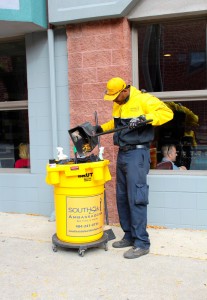
Danny, a South Side Ambassador, sweeps up leaves and other debris from a sidewalk on the corner of West Morton and New streets Oct. 31. (Meghan Reilly/B&W Photo)
Snelling explained that, if someone is parked four blocks away and is uncomfortable walking to their car alone, the ambassador can walk with them.
Laura Jasorka, the owner of Loose Threads Boutique, a clothing store on Fourth Street, said that she first moved her closing time from 8 p.m. to 7 p.m. and now to 6 p.m. because of the issues that can arise at nighttime.
“Customers come in late at night that may be drunk and some have stolen things,” Jasorka said. “I had a group of people once who were all drunk and started with me, and it was scary for a minute. I was not sure what to do and was about to call police, and they sensed that I was uncomfortable, so they ran out of (the store). If an ambassador was around, it would be convenient to wave them down.”
Jasorka also said that there have been small issues of vandalism to her storefront, including spray paint, broken or stolen flower pots, and a stolen bench.
“It’s a toss-up whether to spend the money on something getting stolen, but I’ve only had a few things happen, nothing too major,” she said.
Snelling said there have been many measures, like tax incentives and working with property owners, to improve South Bethlehem in the past, but such a comprehensive program that simultaneously addresses many needs has not been previously implemented.
From March 29 to Sept. 25 of this year, there were 144 burglaries, robberies, and vehicle break-ins/thefts, according to Crimemapping.com, a service with which the Bethlehem Police Department partners. In that same time period, there were 118 cases of vandalism. There were 425 crimes overall in the time period.
City-data.com rates cities on their level of crime, and a lower score means less crime. Bethlehem has a crime rate of 229.2 for 2012, the latest year listed. Nearby Allentown received a rate of 398.9 for 2012.
The average rating in the U.S. is 301.1.
Lopez said that the ambassadors have not faced many obstacles yet in their work but have noticed that cleaning the streets will be a process.
“We are finding that there are layers of debris,” he said. “We attacked graffiti, stickers, large articles of debris and garbage and have taken off the top layer. Now we have started to see the small scribblings and debris that we didn’t notice before. We are starting to address weeds, broken windows, cigarettes and chewing gum, and (are peeling) that layer back.
“We’ve taken (the task at hand) and hit the ground running,” Lopez continued. “From what we are hearing, people are seeing a difference, but it is difficult for us to see it because we are concentrating on taking it down layer by layer.”
Lopez also said that once spring comes, the ambassadors will power-wash sidewalks to get rid of dirt and debris.
Dale Kochard, Lehigh’s assistant vice president of community and regional affairs, was part of the group that brought Block by Block to Bethlehem and said he has noticed a difference in the look of the South Side.
He said that some small things that many people do not always notice, like stickers and graffiti on boxes for traffic light mechanisms and lamp posts, have been cleaned off, which helps contribute to a more aesthetic downtown around which people can walk.
Kochard and Snelling hope that the implementation of this program will help bring more business to the stores on Third and Fourth streets.
“Twenty thousand cars drive down Third Street every day and it is a direct connection between routes 78 and 22,” Kochard said. “The market is going right by the front door every day. Yet the stores are still struggling, so we think about what can we do so that when they are at a red light, they see that things are happening, and they’ll think, ‘Maybe I’ll come back.’”
Kochard hopes that the improvements will help draw Lehigh students into town by making it desirable enough to warrant the trip down — and back up — South Mountain.
“(We want to) make it more of a destination place, a shopping place, and attract students, too,” he said. “One of the challenges with Lehigh is we’re on the hill, and if you get down, you have to get back up.”
Kochard says that the tax money, as well as other funds, will be used for capital improvements in the area going forward.
These improvements can be seemingly small additions like benches, flower pots, banners and outdoor social spaces that will make visitors — who are already being drawn because it is safer and cleaner — want to socialize and spend more time in the downtown area.
Retailers, particularly small business owners, across the country have struggled over the past decade because of the rise of online shopping, Kochard explained. But, the desire to socialize has stayed, and creating a viable downtown can contribute to that.

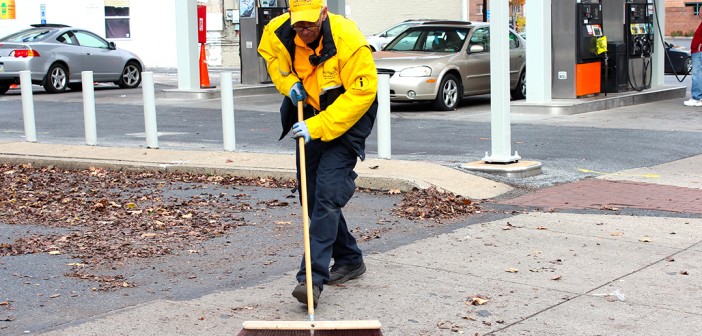

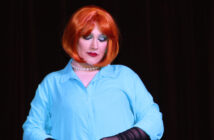
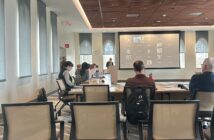
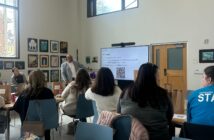
Comment policy
Comments posted to The Brown and White website are reviewed by a moderator before being approved. Incendiary speech or harassing language, including comments targeted at individuals, may be deemed unacceptable and not published. Spam and other soliciting will also be declined.
The Brown and White also reserves the right to not publish entirely anonymous comments.